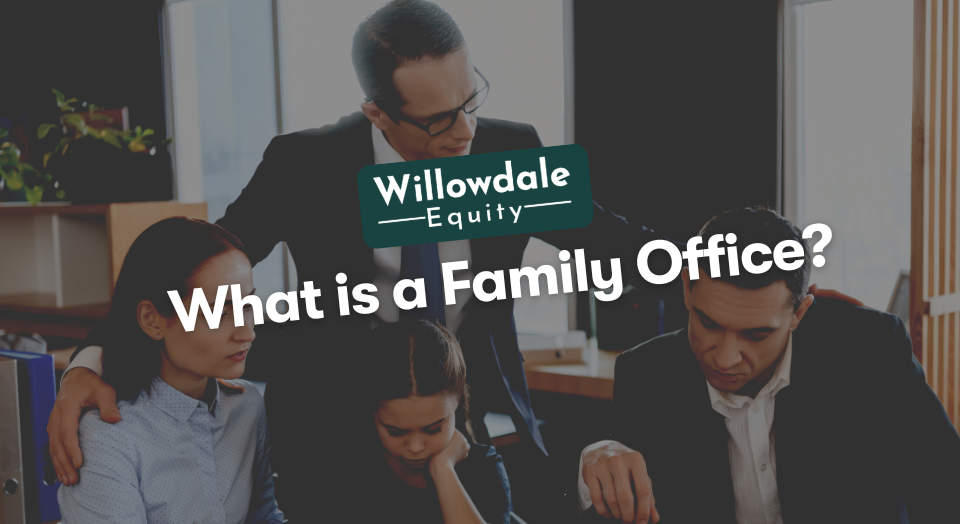
Family Office Definition: What is a Family Office in Investing?
This article is part of our guide on the single-family office structure, available here.
Families with very high net worth often struggle when it comes to managing their finances, investments, and assets. They’ve got tons of things on their plate, and taking care of their wealth often takes a back seat to other tasks.
The good news is that there are private companies called family offices that can manage and administer the resources of very high-net-worth families. They also develop strategies for the maintenance of assets and the proper development of family investments.
While that might be a very basic family office definition, there’s much more that goes into it. In this article, we’ll address all the details about family offices.
Key Takeaways
-
Family offices are created to maintain wealth for generations, manage it, and grow it.
-
The wealthiest families in the world, such as Elon Musk and Bill Gates, use this wealth management model. They have private family offices that manage and grow their wealth, involve complex investments, open and secure trusts, and take care of lifestyle holdings.
-
Having a Family Office is of great help, for example, for those family leaders in charge of general wealth management and all this complicated financial structure that requires a lot of time and knowledge.
Single Family Office Definition (SFO) - What is a Family Office in Investing?
In investment, ‘family office’ refers to a private company responsible for administering and managing the wealth of very High Net Worth Individuals (HNWI) and families. The family office concept specializes in offering personalized financial and investment services.
Family Offices differ from the traditional lines of investment management and financial advice in that their solutions are 100% outsourced. They assist HNW families and individuals through budget preparation services, managing financial assets, acquisition insurance, family governance, and charitable donations, to name a few.
The wealthiest families in the world, such as Elon Musk and Bill Gates, use this wealth management model. They have private family offices that manage and grow their wealth, involve complex investments, open and secure trusts, and take care of lifestyle holdings. Besides financial matters, the family offices also handle private education, travel, and domestic needs.
Many family offices are hired to maintain wealth for generations, manage it, and grow it. There are three essential pillars of wealth management:
- Independent advice: Advice based on all the interests of the families by experts.
- Integrated strategy: A strategy that allows experts to meet the needs of each family.
- Individualized Services: Services that are tailored to each family.
Family Offices are divided into Single-Family Offices (SFOs) and Multi-Family Offices (MFOs). SFOs manage only a single family’s assets, while MFOs serve many clients simultaneously. Let’s take a closer look at MFOs.
What is a Multi-family Office (MFO)?

A multi-family office, like a family office, is a business that manages the finances of HNW families. However, unlike Single-Family Offices, MFOs manage the wealth of more than one family. In this case, the advice and management aren’t so personalized. Here, equipped with experts in finance and investments, they create solutions and objects to each family’s financial structures and plans.
MFOs, like SFOs, have the control to manage private investments, advise and manage tax strategy, help with banking and credit, and offer counseling services. This can include providing personal administration apart from financial ones like planning trips and paying bills.
These offices, unlike single-family offices, are usually cheaper because they work with the family financial matters of multiple households. The changes made correspond to porches on each family’s managed assets or investment portfolios.
Some benefits of family office services, among others, are:
- Management of family assets.
- Privacy and confidentiality of each client.
- Optimization of the investment strategy, providing good profitability and low risk.
- No need to deal with banks, creditors or lawyers since MFOs take care of everything.
In this way, each family office, whether a Single Family Office or a Multi-family Office, greatly benefits those who need to leave their finances and investment movements in the hands of experts. They facilitate many aspects of the lives of these wealthy families.
Are you still unsure of what an SFO vs. MFO is? Let’s take a closer look at the difference between these two types of family offices.
What’s the Difference Between a Single Family Office and a Multi-Family Office?
The main difference between a Single Family Office (SFO) and a Multi-family Office (MFO) is that the former works and deals with the fortune of one client. In contrast, an MFO works on the wealth of various families at a time.
In some cases, MFOs are more generalized, while a traditional family office is more specialized in each family’s line of investment. So if, for example, a family has invested in real estate for generations, they’ll also do so through their investment company or family office. In this case, the MFOs have an investment strategy based on the risk and return of their clients. The strategy is generally comprehensive, making them lose a bit of personalization. Many MFOs handle wealth management, leaving the investment decisions to third-party asset managers.
In contrast, SFOs are made up of expert personnel qualified as former consultants or high-profile investment bankers. They’re able to create more tailored strategies for their clients.
If you’re an ultra-high-net-worth investor or individual, it can be tough to tell whether you need a family office or not. Let’s take a look at how to determine whether or not you need a family office.
As a Ultra High Net Worth Investor (UHNW), Do You Need a Family Office?
Not everyone who considers themselves an Ultra High Net Worth Investor or UHNWI needs a family office. However, those who feel they need it agree that the decision to have a Family Office reduces financial stress and the burden of managing these resources. Having a Family Office is of great help, for example, for those family leaders in charge of general wealth management and all this complicated financial structure that requires a lot of time and knowledge.
Most family offices are also beneficial for a wealthy family that travels constantly. A Family Office guarantees normal functioning of the finances without the need for supervision by the family that owns the estate.
Undoubtedly, having a backup of this type releases a lot of stress and generates a lot of peace of mind for families and individuals. That’s because they can delegate time-consuming and rigorous tasks they prefer to avoid. And, just as family offices are mainly in charge of money movements, they can also manage personal situations that lighten the load for people.
So, although not all families need a family office to manage family wealth, these companies are ideal for busy entrepreneurs with complicated financial lives. And they also work well for family members who seek peace of mind by leaving finances in the hands of experts.
Frequently Asked Questions About What is a Family Office in Finance?
The point of a Family Office is to hire a private and personal manager for the wealth of high-net-worth families. The manager will provide solutions and support those family members through the administration, management, and daily strategy of current and long-term family financial affairs.
Family offices are typically run by qualified financial experts, such as high-profile investment bankers or former wealth and investment consultants. The average small family office will generally have other professionals working for them, including accountants, tax and estate planning specialists, financial analysts, portfolio managers, investment managers, and trust officers, among others.
The difference between wealth management and family office lies in the fact that the family office is hired by families with significant assets for the resource management service.
In contrast, wealth management is based on providing investment advice and developing asset and wealth management strategies.
What is a Family Office - Conclusion
A family office is a company for high-net-worth individuals and families who wish to delegate complex financial management and administration tasks to experts. Those experts then manage and grow the family’s wealth over several generations.
Through a family office, wealthy families have the opportunity to hire a personalized service for these tasks that require time and knowledge. As a result, they can grow and maintain their wealth through the assistance of experts who fully understand how to be financially successful.
If you’re considering expanding your real estate portfolio into larger assets like multifamily and investing like a family office, join the investor club to access our exclusive learning resources and our private investing opportunities.
Sources:
- Deloitte, “The purpose of a family office “
- Family Office Recruitment, “What is a Family Office?”
The Willowdale Equity Investment Club is a private group of investors that are looking to passively grow their capital and share in all the tax benefits through multifamily real estate investments.






